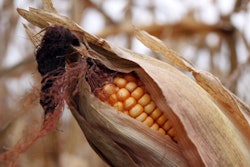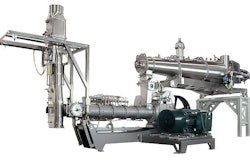In a statement submitted this week to the U.S. Food and Drug Administration (FDA), the National Grain and Feed Association (NGFA) outlined several existing regulatory requirements that could be changed or eliminated to reduce regulatory burden on the grain and feed industry while still preserving FDA’s ability to fulfill its public health responsibilities.
“The NGFA appreciates this opportunity to provide comments on existing FDA regulations and information collections for the agency’s consideration for repeal, replacement or modification,” the NGFA’s statement noted. “We believe there are several existing regulatory requirements that can be revised to achieve meaningful regulatory burden reduction while allowing FDA to fulfill its public health mission and statutory obligations.”
FDA issued a broad request for comment in September 2017 to assist the agency in identifying regulations that it could modify, repeal or replace to reduce regulatory burdens. The agency issued the request as part of its implementation of the Trump administration’s executive order, “Reducing Regulation and Controlling Regulatory Costs,” which directs each agency to establish a Regulatory Reform Task Force to evaluate existing regulations.
Several of the NGFA’s recommendations address regulations issued during the Obama administration to implement the Food Safety Modernization Act (FSMA).
One of NGFA’s major recommendations urged FDA to change current regulations that cause grain elevators to lose the statutory exemption from requirements to develop current good manufacturing practices, hazard assessments and preventive controls merely because they are located at the same general location as a feed mill or processing plant.
“The NGFA believes the agency has authority to provide additional exemptions and modifications so that the requirements are further applied in a risk-based manner while still assuring food safety,” wrote NGFA Senior Vice President for Feed Services David Fairfield. “Specifically, the NGFA believes that FDA should modify existing regulations and their application to the exemptions that apply to establishments and facilities ‘solely engaged’ in certain activities.”
Request to reclassify pulses
The NGFA also urged FDA to reclassify pulses (e.g., dry peas, lentils, chickpeas, and dry beans) from the “fruits and vegetables” category to the “grain” category.
“This reclassification is necessary so that pulses are not subject to additional FSMA-related requirements that are inappropriate and unnecessary to protect public health,” the NGFA noted.
Another notable NGFA recommendation is for FDA to provide written guidance that clearly acknowledges that for regulatory compliance purposes, animal feed safety can be assured through prerequisite programs like current good manufacturing practices, rather than costly, cumbersome and paperwork-heavy preventive controls.
“Such written guidance is needed to avoid the undesirable and unnecessary outcome of industry implementing extremely costly and burdensome preventive controls simply to satisfy regulatory expectations that are not risk-based and do not enhance animal food safety,” the NGFA noted.















